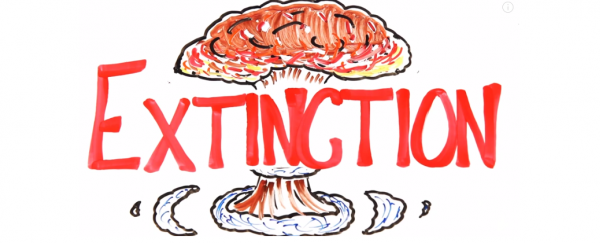Over 99 percent of all the animal species that have ever lived have gone extinct. When you think about the amazing diversity of life Earth - every bird, bee, spider, sponge, fish, fly, and strange golden horse - and consider that it's all just 1 percent of what's ever lived, breathed, and reproduced on the planet since its very beginnings, it's pretty mind-boggling. So where did everything go?
The latest episode of AsapSCIENCE takes us through the biggest extinction events of Earth's history, starting with a cataclysmic event that occurred 440 million years ago and wiped out so many of our very distant sea-dwelling ancestors. "As newly created volcanic rock was worn down by water and wind, it reacted with carbon dioxide and absorbed it," says Mitch in the video. "As a result, carbon dioxide levels dropped, temperatures fell, and water got locked away as ice."
Huge changes like this have equally huge run-on effects, and in this case, ocean levels dropped dramatically, and the shallowest seas were drained dry, and 86 percent of the species alive at the time were wiped out. All because of some rock reacting with the air.
Fortunately, one thing life on Earth is good at is bouncing back, so millions of years following this event, the oceans were gradually refilled with sea life, and early plants sprouted too, giving rise to the first insects. So, who do we blame for the next mass extinction event? It's always the quiet guys you least expect, and by that I mean those newly formed plants. Some 374 million years ago, the plants had absorbed so much carbon dioxide that they actually created another round of global cooling, says AsapSCIENCE. And to make matters worse, nutrients seeped out of the soil into the oceans, feeding new, enormous populations of algae, which sucked up a whole lot of oxygen out of the atmosphere.
The result? You guessed it - mass suffocation. But those species that survived would give rise to the modern species we see today, so it wasn't a total loss.
Watch the latest episode of AsapSCIENCE above to hear about more huge extinction events in Earth's history. It makes you appreciate what every bird, bee, spider, and sponge has gone through to get here.
